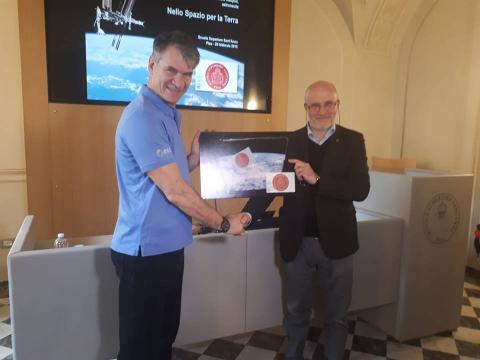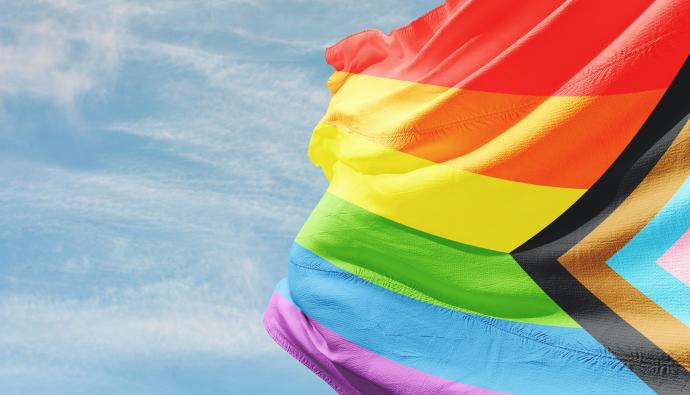life in space beyond earth: SANT’ANNA school and esa launch their first “SPACE BIOLOGY” training program. PAOLO NESPOLI as lecturer on february, 26, 2019

Space agencies, including NASA, ESA (the European Space Agency) and the China National Space Administration (CNSA), are aiming to test human resilience in the isolation of long-term space missions. Astronauts on prolonged missions discovered how space journeys represent a physiological and psychological challenge to the human body because of the absence of gravity and the presence of radiation. To support astronauts in future exploration of planets orbiting other stars, NASA, ESA and CNSA organized advanced training programs devoted to train the next generation of scientists focusing on space medicine and the biomedical research necessary to keep astronauts safe and improve the health of people on our planet. As missions to moons (researchers have identified more than 100 exoplanets and potential life-hosting moons) are being developed, scientists are testing radiation protectants which may benefit humans in space and patients on earth.
Through cross-disciplinary education programmes with additional focus on basic biomedical research, Sant’Anna School and ESA launch Italy’s first program on “Space Biology” as a cooperation agreement was signed to help humans to survive and function effectively on planetary surfaces. The initiative consists of a five-lecture course designed for students interested in space sciences. The course “Space Biology” will be held between 20 February and 5 March 2019.
Debora Angeloni, a biologist at the Life Sciences Institute and the course coordinator, will give the first of her lectures on microgravity cell biology on February 20 at 2.00 pm.. ESA astronaut Paolo Nespoli will lecture on Tuesday, February 26.
Biomedical research plays a key role for mitigating high-priority risks associated with human space exploration, such as long periods of exposure to radiation, low solar activity and increase of cosmic rays. Along with radiation countermeasures, researchers are focusing on cognitive conditions, safety considerations, astronauts’ physical work, routine maintenance of the habitat, mobility in spacesuits.
“Space biology and biomedical research have provided significant scientific return and developed specific technological capabilities that can be applied in daily life on earth – explained Debora Angeloni. Now we need new innovative approaches to address the most interesting challenges of our time; an international collaboration and a collective effort leading to the colonization of space”.
The Space Biology research enabled by planets exploration will demand advanced technological developments. Debora Angeloni revived the idea of an international space station, bringing a series of world’s most influential scientists to Sant’Anna School for ten lectures on specialist topics. Scientists will discuss the impact of long-term space travel on the astronauts' microbiome (consequences of alterations in the microbiome due to extreme environments, and the related human health risk), vision problems, loss of bone density, and induced (synthetic torpor) hibernation to survive in harsh environmental conditions and long-term missions.
Calendar of Events:
1. Wednesday, 20 February (room 7, 2.00 -4.00 pm) Debora Angeloni, Sant’Anna School: “Microgravity research for fundamental cell biology questions. Gravisensing at cell level”.
2. Friday, 22 February (room 3, 4.00 -6.00 pm) Ivana Barravecchia, Sant’Anna School: “Transcriptome study of endothelial cell response to space flight”.
3. Tuesday, 26 February (room 3, 5.00 - 7.00 pm) Paolo Nespoli, ESA: “Space as an environment for experimental biology: physical parameters aboard the International Space Station and other space crafts”.
4. Friday, 1 March (room 7, 4.00 -6.00 pm) Debora Angeloni, Sant’Anna School: “Cell mechanical memory and transduction pathways”.
5. Tuesday, 5 March (room 3, 4.00 -6.00 pm) Gianni Ciofani, Politecnico di Torino, Centro di MicroBioRobotica IIT - Pontedera: “Molecular countermeasures to space flights: the case of nano-antioxidants”.
Cover photo: Research team and Debora Angeloni (centre).
In gallery: Italian Astronaut Paolo Nespoli returns to Rector Pierdomenico Perata the Sant'Anna School flag which has flown aboard later VITA space mission.




